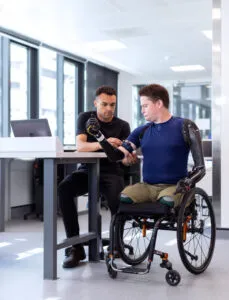
Transcript:
Unfortunately, with the population of the country’s elder population growing, and an influx of new, untested long term care facilities, the number of elder abuse cases is growing. However, there are some things that loved ones can do to reduce the risk of abuse or neglect at a nursing home or assisted living facility.
When deciding on a long term care facility for your loved one, ask questions about the staff to resident ratio. Numerous studies show that poor staffing levels are directly correlated with neglect and abuse cases. An overworked or burned-out staff will be more likely to neglect residents, or create an environment in which tempers flare and abuse occur.
Understand your loved one’s strengths and weaknesses. Recent studies demonstrate that some residents of nursing homes are more vulnerable to abuse or neglect than others. Residents requiring a higher level of need, such as those with severe dementia, tend to have higher instanced of abuse. As such, loved ones of the resident should be extra cautious of the warning signs of neglect and abuse.
Be a part of your loved one’s life as much as possible. Residents who rarely receive visits from family members are often more vulnerable. Regular visits from family members show the long term care facility that the resident has advocates and watchdogs. Develop a report with the staff, get to know caretakers, and be involved with care. That way, you can also act as an extra set of eyes to potential neglect, and the injuries that occur from lack of care.
Of course, there are many other ways to reduce the likelihood of injury to your loved one at a nursing home or assisted living facility. If you suspect that your loved one has been abused or neglected at a Georgia nursing home, and you are wondering what to do next, then please do not hesitate, call and speak to one of our experienced Atlanta nursing home abuse lawyers today.



